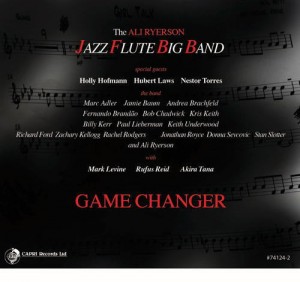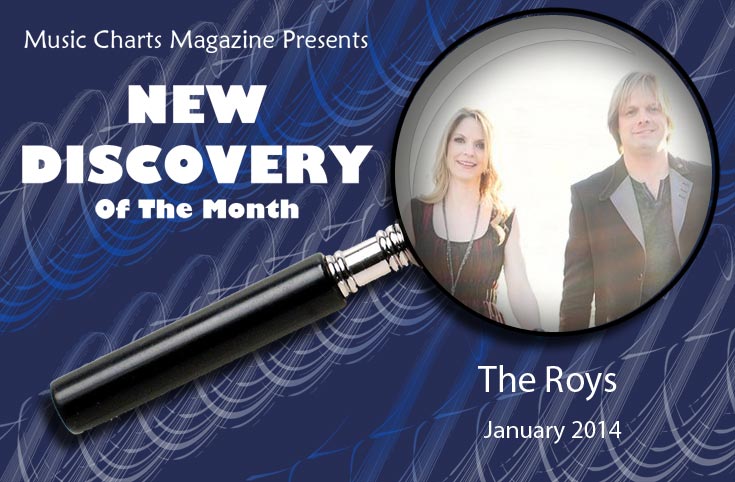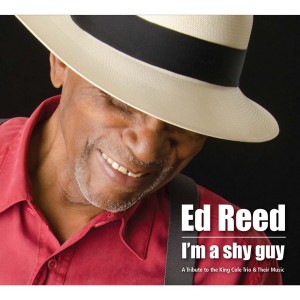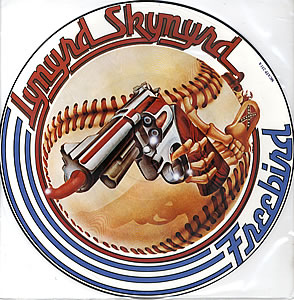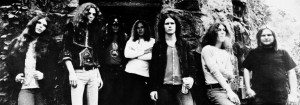JasonR
Date = January 24th, 2014
Artist Name = Ali Ryerson
Genre = Jazz
Title = Game Changer
Record Company = Capri
Review =
For at least six decades, some jazz recordings have featured multiple instruments of the same family. Beginning in the mid 1950s, for example, a vocal group released albums titled The Four Freshmen and Five Trombones, The Four Freshmen and Five Trumpets, The Four Freshmen and Five Saxes, and The Four Freshmen and Five Guitars. In 1956, Columbia released J. J. Johnson and Kai Winding’s Jay & Kai +6, with eight trombonists. The next year, Art Blakey recorded an album (Orgy in Rhythm) featuring nine percussionists. A few years later, Warner Brothers issued LPs by groups known as Guitars, Inc; Saxes, Inc.; and Trombones, Inc. The first includes five guitarists; the second, thirteen saxophonists; the third, twenty trombonists, though only ten play at a time. Beginning in 1977, Odean Pope released several albums by his saxophone choir, usually consisting of nine saxophonists. At a session presumably led by Jane Bunnett, the Havana Flute Summit recorded an album with four flautists (1996). This number of flutes is modest when compared with the nineteen on Ali Ryerson’s Game Changer (2012), possibly the most recent recording featuring many musicians playing the same kind of instrument, or variations of it.
Ryerson had to confront the issue of how best to attain tonal diversity in music played by a band of flutes. She did so by employing several types of the instrument: C, alto, bass, and contrabass. One musician doubles on piccolo. She engaged six arrangers who helped provide variety by writing engaging voicings and occasionally dividing the flutes into two sections, with one playing the melody while the other supports it, as frequently happens between reeds and brass in a typical big band. Ryerson and the arrangers added texture by allotting solo space to members of the rhythm section--pianist Mark Levine, bassist Rufus Reid, and drummer Akira Tana. These tactics help—and the multitude of flautists adds body--but the overall sound remains, understandably, thin. It seems less so when the band backs a soloist, primarily because the large group is then of secondary interest. Sometimes, it rests during a solo.
Despite this issue, Ryerson’s CD has much to recommend it, including the hip tunes it plays. Aside from Gabriel Fauré’s 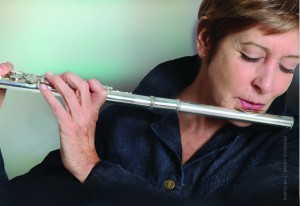 “Pavane” (which has been recorded by Bill Evans and other improvisers), they are all by jazz musicians: Clifford Brown’s “Daahoud,” Wayne Shorter’s “Ana Maria,” Oliver Nelson’s “Stolen Moments,” Herbie Hancock’s “Speak Like a Child,” Dizzy Gillespie’s “Con Alma,” John Coltrane’s “Impressions,” Tom Harrell’s “Sail Away,” and Neal Hefti’s “Girl Talk” and “Lil’ Darlin’.”
“Pavane” (which has been recorded by Bill Evans and other improvisers), they are all by jazz musicians: Clifford Brown’s “Daahoud,” Wayne Shorter’s “Ana Maria,” Oliver Nelson’s “Stolen Moments,” Herbie Hancock’s “Speak Like a Child,” Dizzy Gillespie’s “Con Alma,” John Coltrane’s “Impressions,” Tom Harrell’s “Sail Away,” and Neal Hefti’s “Girl Talk” and “Lil’ Darlin’.”
While hip tunes appeal, what matters is how they are interpreted and performed. Because the band plays what the arrangers wrote, they are the major interpreters, and their creations are uniformly attractive. Ryerson employed six of them: Billy Kerr (who also performs on flute), Mark Levine, and Steve Rudolph, who were responsible for one tune each, plus Michael Abene (two tunes), Bill Cunliffe (two), and Mike Wofford (three). Consider “Ana Maria.” On Shorter’s original recording, the soprano saxophonist is the only soloist, and mostly he plays the melody. Wofford’s lush arrangement emphasizes the tune’s chords and inherent loveliness while allowing for solos by bassist Reid and, on alto flute, Marc Adler. Wofford’s interpretation is every bit as valid as the composer’s version and is, if anything, more pleasing, at least to me. Or consider “Con Alma,” for which Cunliffe provides a new introduction (new to me, anyway). About half-way into the piece, following Nestor Torres’s solo on C flute, the performance all but stops, then resumes with original Cunliffe material played in a more sprightly manner than the first part. Following a brief solo by drummer Tana, the music again halts before returning to Gillespie’s melody. That is, Cunliffe offers an idiosyncratic version of “Con Alma” that keeps the listener expecting the unexpected. In other words, these and the other arrangements are inventive and well suited for the group that plays them. And the musicians perform the arrangements as directed: they never falter; they are professionals. Plus, the three guest flute soloists—Holly Hofmann (C flute), Hubert Laws (alto), and Torres (C), each of whom solos once—are good improvisers. At least I assume they improvise, as opposed to playing written solos.
Because of Ryerson’s musical vision for this band of odd instrumentation, because of the excellent arrangements of attractive tunes, because of the musicians’ ability to perform well, and because of the nature of the solos, I recommend this CD. Ultimately, the unavoidable thin sound—which is ameliorated somewhat by strategic planning--matters little.
Author = Benjamin Franklin V
Music Charts Magazine ™ - Album & Artist Reviews
About Fred's Country program:
Le program Fred's Country: La musique Country de Tradition avec Frederic (Fred) Moreau. Le program Fred's Country est diffusé sur 65 fréquences FM, 54 radios ou webradios.
Radio Show Host: Fred Moreau
Program Fred's Country w04-2014 - 24 janvier 2014 à 15:00 - January 24th, 2014
Music Charts Magazine is proud to be friends with Mr. Moreau and glad to now be one of the many to host Program Fred's Country. ( French/English)
| Album |
LW |
TW |
Artist Title (Label) |
TW SPINS |
LW SPINS |
Weeks on Chart |
Spin +/- |
Stations |
|
|
1 |
Granger Smith Miles and Mud Tires (GS) |
887 |
|
13 |
|
55 |
|
|
|
2 |
Jason Boland & the Stragglers Electric Bill (Proud Souls Ent.) |
879 |
|
14 |
|
54 |
|
|
|
3 |
Cody Johnson Dance Her Home (CJB) |
856 |
|
4 |
|
52 |
|
|
|
4 |
Josh Grider Smallest Town on Earth (AMP) |
822 |
|
11 |
|
53 |
|
|
|
5 |
Randy Rogers Band Speak Of The Devil (MCA Nashville) |
801 |
|
15 |
|
56 |
|
|
|
6 |
Aaron Watson July in Cheyenne (Thirty Tigers) |
761 |
|
10 |
|
51 |
|
|
|
7 |
William Clark Green Rose Queen (Bill Grease Records) |
750 |
|
10 |
|
46 |
|
|
|
8 |
John David Kent Until We Turn Around (Blackland/Roustabout) |
695 |
|
20 |
|
45 |
|
|
|
9 |
Casey Donahew Band Small Town Love (Almost Country) |
688 |
|
9 |
|
50 |
|
|
|
10 |
Josh Ward Hard Whiskey (Buckshot Records) |
655 |
|
5 |
|
49 |
|
|
|
11 |
Wade Bowen Songs About Trucks (AMP/Sea Gayle) |
636 |
|
16 |
|
42 |
|
|
|
12 |
Curtis Grimes The Cowboy Kind (CG) |
617 |
|
8 |
|
47 |
|
|
|
13 |
Kevin Fowler How Country Are Ya? (Kevin Fowler Records) |
585 |
|
14 |
|
36 |
|
|
|
14 |
Reckless Kelly The Last Goodbye (No Big Deal) |
582 |
|
20 |
|
44 |
|
|
|
15 |
JB and the Moonshine Band w/Angaleena Presley Black and White (Average Joe’s) |
558 |
|
6 |
|
45 |
|
|
|
16 |
Bart Crow Loving You’s a Crime (Smith Ent.) |
547 |
|
21 |
|
47 |
|
|
|
17 |
The Statesboro Revue Huck Finn (Vision Ent./Shalley Records) |
544 |
|
14 |
|
36 |
|
|
|
18 |
Phil Hamilton Hold On Tight (Winding Road) |
479 |
|
7 |
|
38 |
|
|
|
19 |
Turnpike Troubadours If You’re Gonna Play in Texas (Lightning Rod Records) |
455 |
|
14 |
|
41 |
|
|
|
20 |
Mario Flores Let Your Lonesome End With Me (MF) |
446 |
|
16 |
|
39 |
|
|
|
21 |
Whiskey Myers Home (Wiggy Thump) |
435 |
|
9 |
|
41 |
|
|
|
22 |
Deryl Dodd Loveletters (Smith Ent.) |
424 |
|
15 |
|
38 |
|
|
|
23 |
Brian Keane Bar Lights (BK) |
420 |
|
5 |
|
40 |
|
|
|
24 |
Rich O’Toole I Love You (PTO Records) |
401 |
|
21 |
|
32 |
|
|
|
25 |
Zane Williams Little Too Late (ZW) |
398 |
|
3 |
|
41 |
|
|
|
26 |
Sam Riggs Angola’s Lament (SR) |
382 |
|
6 |
|
37 |
|
|
|
27 |
Jason Cassidy Southern Side (JC) |
342 |
|
10 |
|
37 |
|
|
|
28 |
Ray Johnston Band Crush (RJB) |
326 |
|
6 |
|
34 |
|
|
|
29 |
Will Hoge Strong (WH) |
322 |
|
20 |
|
28 |
|
|
|
30 |
Rob Baird Same Damn Thing (RB) |
310 |
|
4 |
|
34 |
|
|
|
31 |
Mike and the Moonpies The Hard Way (MATM) |
307 |
|
3 |
|
31 |
|
|
|
32 |
Kyle Park Fit For The King (Indie/Thirty Tigers) |
305 |
|
21 |
|
31 |
|
|
|
33 |
Mark McKinney Stolen Cash (Texas Evolution) |
304 |
|
22 |
|
32 |
|
|
|
34 |
Charlie Robison Brand New Me (Thirty Tigers/Jetwell, Inc.) |
304 |
|
12 |
|
28 |
|
|
|
35 |
Uncle Lucius Somewhere Else (Entertainment One Music) |
302 |
|
5 |
|
33 |
|
|
|
36 |
Rankin Twins Jezebel (RT) |
298 |
|
17 |
|
33 |
|
|
|
37 |
Jesse Raub, Jr. Bad Intentions (JRJ) |
298 |
|
7 |
|
30 |
|
|
|
38 |
Dirty River Boys Desert Wind (DRB) |
291 |
|
4 |
|
29 |
|
|
|
39 |
Rosehill The Bible and the Gun (Cypress Records) |
277 |
|
3 |
|
29 |
|
|
|
40 |
Brandon Rhyder Pray The Night (Smith Ent.) |
277 |
|
16 |
|
29 |
|
|
N |
41 |
Kevin Fowler Love Song (Kevin Fowler Records) |
276 |
|
1 |
|
29 |
|
|
|
42 |
Jason Eady OK Whiskey (JE) |
274 |
|
2 |
|
27 |
|
|
|
43 |
Kylie Rae Harris Waited (KRH) |
272 |
|
2 |
|
28 |
|
|
|
44 |
Clay Thrash My Heart (Grange Records) |
271 |
|
2 |
|
28 |
|
|
N |
45 |
Lower 40 Call Me Crazy (Land Run Records) |
256 |
|
1 |
|
26 |
|
|
|
46 |
Jake Kellen Jesus and Hank (Horny Toad Records) |
250 |
|
12 |
|
27 |
|
|
N |
47 |
Redneck Brown & the Freshwater Donkeys When I Think About Texas (RB&FD) |
248 |
|
1 |
|
22 |
|
|
|
48 |
Kris Gordon Triple on the Double (Frio Records) |
238 |
|
11 |
|
28 |
|
|
N |
49 |
Michael Coleman w/Jody Booth Radio Don’t Sound Like Me (DMG/CaneyCreek) |
235 |
|
1 |
|
22 |
|
|
R |
50 |
Bo Phillips Band Jonesin’ For George (BPB) |
220 |
|
3 |
|
26 |
Non Reports:
1st Week: KBIM, KBSO, KBST, KFWR, KHPA, KKCN, KNUE, KOLI, KOXE, KSAM, KTCS, KXIT, KYKC, Radio Texas Live
On Holds:
KORA, KSTV
Copyright © 2013, the Texas Music Chart. Used with permission from Best In Texas Music Marketing LLC, Houston, TX
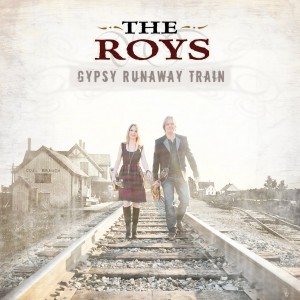 Music Charts Magazine Presents - "NEW DISCOVERY" - "The Roys - Gypsy Runaway Train" - for the month of January 2014.
Music Charts Magazine Presents - "NEW DISCOVERY" - "The Roys - Gypsy Runaway Train" - for the month of January 2014.
Looking for some "New" music to add to your player and can't find anything that blows you away?
Check out this Music Charts Magazine "NEW DISCOVERY" Interview with "The Roys" and be prepared to be excited knowing there is still 100% awesome music out there that you still have not heard.
After you listen to this great interview showing you the ins and outs of "The Roys and the song Gypsy Runaway Train" we are sure you will be glad you found this "New Discovery" to add to your music playlist.
The duo has shared the stage with superstars George Jones, Ricky Skaggs, Alan Jackson, Lady Antebellum, Doyle Lawson, Jason Aldean, Blake Shelton, Rhonda Vincent, Chris Young, Sara Evans, J.D. Crowe, The Oak Ridge Boys, Janie Fricke, Dailey & Vincent, Neal McCoy and Collin Raye. They also performed with Jim Lauderdale at the sold-out "Playin' Possum! The Final NO Show" in Nashville on November 22, 2013. Jim Lauderdale and The Roys mixed it up with “Why Baby Why” (1955), Jones’ first chart record. This 2014 will likely prove to be even bigger and better for The Roys.
Radio interested in how to obtain this music please contact us on our contact page and we will be glad to get it to your radio station for radio play. Many thanks to those of you who have already played it.
For booking, interviews, or just to say Hi! Contact The Roys at:
- www.somuchmoore.com
- http://www.theroysonline.com/
- https://twitter.com/theroysonline
- https://www.facebook.com/theroysmusic?ref=search
- https://www.youtube.com/user/theroystv
- Mailing list: http://websterpr.us1.list-manage1.com/subscribe?u=bf141dbbd818f4f933816b13a&id=079f0f9502
Music Charts Magazine proudly presents "NEW DISCOVERY" for the month of January 2014 "The Roys - feature song Gypsy Runaway Train"
LISTEN to "NEW DISCOVERY" Interview with The Roys HERE:
Music Charts Magazine Presents "New Discovery" The Roys featuring the song "Gypsy Runaway" - Interview by Award winning DJ Big Al Weekley
Music Charts Magazine Presents NEW DISCOVERY "The Roys - Gypsy Runaway Train" - Interview by Big Al Weekley
Copyright © 2012 - 2013 Music Charts Magazine, INC - All Rights Reserved. Contents of this site including text and media may not be reproduced without prior written consent. Audio and video elements of this site are property of their respective owners and are used with permission.
Date = 18 January 2014
Artist Name = Ed Reed
Genre = Jazz
Title = I’m a Shy Guy
Record Company = Blue Shorts
Review =
Many jazz musicians have had odd careers. Active in the 1930s, alto saxophonist Boyce Brown left music to become a friar; as Brother Matthew, he recorded once, in 1956. Trumpeter Don Joseph recorded off and on during the 1950s, but only once subsequently, in 1984, presumably because of poor health. Frustrated with his playing, Sonny Rollins took two sabbaticals, one in 1959 to practice for three years, and another in the early 1970s to study Eastern thought. Craig Hundley (now Huxley) had an acting career before leading his first recording session at age fourteen; he became a classical pianist, composer, and film producer. One of the strangest careers is that of singer Ed Reed. Though born in 1929, he did not record until 2006. This delay occurred partly because he was a junkie for forty years, beginning in the 1940s, and was incarcerated during the 1950s and 1960s; he sang in a prison band. As best as I can tell, he was musically inactive during the 1970s and 1980s, possibly because of drug problems. Clean since 1986, he resumed singing in the early 1990s. Despite his age and the toll drugs doubtless took on him, his voice seems unaffected. I would characterize it as robust and supple, free from the thinness and quavering that often affect an octogenarian. Someone listening to Reed without knowing his age might think him in his forties.
On his four CDs, Reed performs good tunes that typically have not been overworked. Ed Reed Sings Love Songs (2006) features pieces associated with Duke Ellington (“A Flower Is a Lovesome Thing,” “Daydream”), Thelonious Monk (“Ask Me Now”), and Billie Holiday (“If the Moon Turns Green,” arranged by Carmen McRae). It concludes with an a cappella version of “Motherless Child,” on which he stays in tune. The Song Is You (2007) is jazzier than the first CD because of the space allotted to the Peck Allmond Sextet, which backs the singer, as it does less prominently on Ed Reed Sings Love Songs. Of the eleven selections on The Song Is You, four are by Ellington (“All Too Soon,” “Don’t You Know,” “I Didn’t Know about You,” and “It Shouldn’t Happen to a Dream”). Yet the brief “I’m Through with Love” (2:22) is perhaps the most impressive track because Reed, backed only by guitarist Jamie Fox, sings it through but once, letting simplicity, vocal quality, and emotion make it moving and memorable; anything additional would be superfluous. He sings three songs recorded by Bill Henderson, who influenced Reed (“Don’t Like Goodbyes,” “It Never Entered My Mind,” and the title tune); he performs another one, “Never Kiss and Run,” on his next release, Born to Be Blue (2010). On it, his song selection is typically attractive, though he sings one tune that is grittier than his usual fare, Big Joe Turner’s “Wee Baby Blues.” These three CDs have been warmly received by the jazz press, as, probably, will be his most recent release, I’m a Shy Guy (2013).
Despite critical acclaim, Reed seems little known outside the cognoscenti, possibly because he sings old songs (mostly standards) in an old style when listeners, especially young ones, favor the new: he respects lyrics, enunciates clearly, and improvises by taking melodic liberties. These are, though, desirable, admirable qualities, ones well suited for the kinds of songs Reed prefers, including those on I’m a Shy Guy, on which he sings tunes recorded by Nat Cole’s trio in the 1940s, plus two pieces Cole recorded with the backing of large groups, “’Tis Autumn” (1949) and “Unforgettable” (1956).
Reed follows Cole’s example by taking most of the songs at a relaxed medium tempo. Because of his playfulness and solos by saxophonist Anton Schwartz, pianist Randy Porter, and Fox, the bouncy “Straighten Up and Fly Right” is one of the least restrained performances. “That Ain’t Right” is a blues. The longest track, its amusing lyrics about a gold-digging woman might have inspired Ray Alfred’s lyrics for “I’ve Got News for You” about a two-timing woman. On “That’s the Beginning of the End,” Reed makes believable the advice of a former lover to a woman’s current one. “This Will Make You Laugh” and “I’m Lost” feature Reed backed by a single instrumentalist—Fox on the first, bassist John Witala on the second. Because of the intimacy of each, these two performances are highlights.
The rueful “Baby Baby All the Time” reminds listeners that Bobby Troup wrote a successful song other than “Route 66” (several of his compositions endure, including “You’re Looking at Me,” which Reed performs on Born to Be Blue). It is the sole tune Reed sings on I’m a Shy Guy that Diana Kral sings on her CD of Cole material, All for You (1995). This release, her third, catapulted her to fame in her early thirties. I hope that Reed’s CD of music associated with Cole serves him similarly in his mid eighties.
Author = Benjamin Franklin V
Music Charts Magazine History
- Song for the month of January 2014:
Lynyrd Skynyrd - "Free Bird"
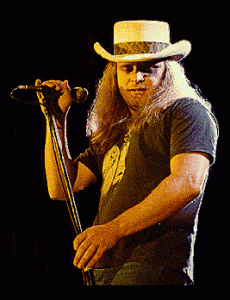 "Free Bird" (often spelled "Freebird", including by the band itself on the cover of the single) is a song by the American rock band Lynyrd Skynyrd. It first featured on the band's debut album in 1973, and has been included on subsequent albums released by the band, including the previously unreleased, unfaded-ending version of the original recording (featured on Skynyrd's Innyrds). Amazon.com music reviewer Lorry Fleming calls it "the most-requested song in the history of rock music."
"Free Bird" (often spelled "Freebird", including by the band itself on the cover of the single) is a song by the American rock band Lynyrd Skynyrd. It first featured on the band's debut album in 1973, and has been included on subsequent albums released by the band, including the previously unreleased, unfaded-ending version of the original recording (featured on Skynyrd's Innyrds). Amazon.com music reviewer Lorry Fleming calls it "the most-requested song in the history of rock music."
Released as a single in November 1974, "Free Bird" became the band's second Top 40 hit on the Billboard Hot 100 chart in early 1975, where it peaked at No. 19. A live version of the song also reached the Billboard Hot 100 chart in 1977, peaking at No. 38. Free Bird also achieved the No. 3 spot on Guitar World's 100 Greatest Guitar Solos.
It is used as a finale by Lynyrd Skynyrd during their live performances, and is their longest song, often going well over 14 minutes when played live.
According to guitarist Gary Rossington, for two years after Allen Collins wrote the initial chords, vocalist Ronnie Van Zant insisted that there were too many for him to create a melody in the belief that the melody needed to change alongside the chords. After Collins played the unused sequence at rehearsal one day, Van Zant asked him to repeat it, then wrote out the melody and lyrics in three or four minutes. The guitar solos that finish the song were added in originally to give Van Zant a chance to rest, as the band was playing several sets per night at clubs at the time. Soon afterward, the band learned piano-playing roadie Billy Powell had written an intro to the song; upon hearing it, they included it as the finishing touch and had him formally join as their keyboardist. The song was originally written in memory of Duane Allman.
Allen Collins's then-girlfriend, Kathy, whom he later married, asked him, "If I leave here tomorrow, would you still remember me?" Collins noted the question and it eventually became the opening line of "Free Bird".
"Free Bird" is included in The Rock and Roll Hall of Fame's 500 Songs that Shaped Rock and Roll, and at number 193 in Rolling Stone's 500 Greatest Songs of All Time. In 2009 it was named the 26th best hard rock song of all time by VH1.
Read more at:
About Fred's Country program:
Le program Fred's Country: La musique Country de Tradition avec Frederic (Fred) Moreau. Le program Fred's Country est diffusé sur 65 fréquences FM, 54 radios ou webradios.
Radio Show Host: Fred Moreau
Program Fred's Country w03-2014 - 17 janvier 2014 à 15:00 - January 17th, 2014
Music Charts Magazine is proud to be friends with Mr. Moreau and glad to now be one of the many to host Program Fred's Country. ( French/English)
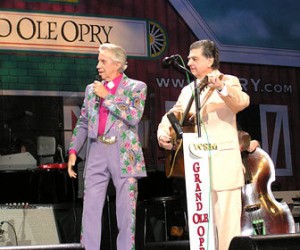 Music Charts Magazine® Celebrity Interview with Bluegrass' Larry Sparks
Music Charts Magazine® Celebrity Interview with Bluegrass' Larry Sparks
Celebrating 50 years in Bluegrass music. Interview with Larry Sparks by Music Charts Magazine's Big Al Weekley. Larry Sparks was the winner of the 2004 and 2005 International Bluegrass Music Association Male Vocalist of the Year Award. In 2005 he won IBMA for Album of the Year and Recorded Event of the Year for his album "40," celebrating his 40th year (2003) in bluegrass music.
|
|
About Fred's Country program:
Le program Fred's Country: La musique Country de Tradition avec Frederic (Fred) Moreau. Le program Fred's Country est diffusé sur 65 fréquences FM, 54 radios ou webradios.
Radio Show Host: Fred Moreau
Program Fred's Country w02-2014 - 10 janvier 2014 à 15:00 - January 10th, 2014
Music Charts Magazine is proud to be friends with Mr. Moreau and glad to now be one of the many to host Program Fred's Country. ( French/English)
About Fred’s Country program:
Le program Fred’s Country: La musique Country de Tradition avec Frederic (Fred) Moreau. Le program Fred’s Country est diffusé sur 65 fréquences FM, 54 radios ou webradios.
Radio Show Host: Fred Moreau
Program Fred’s Country w01-2014 – 6 janvier 2014 à 17:14 – January 6th, 2014
Music Charts Magazine is proud to be friends with Mr. Moreau and glad to now be one of the many to host Program Fred’s Country. ( French/English)
